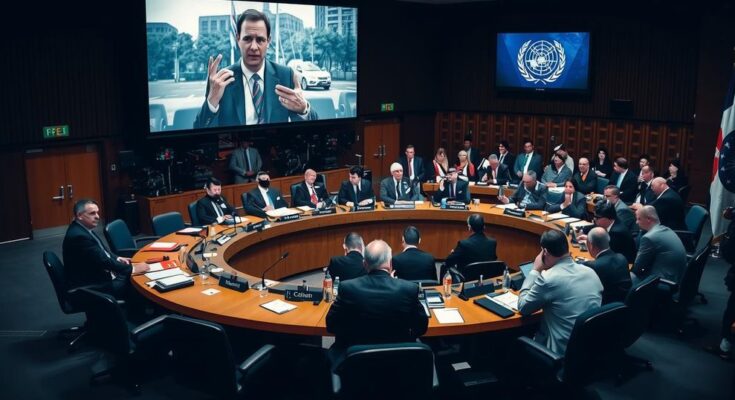COP29, set for November 11, 2024, in Baku, Azerbaijan, seeks to establish new climate finance targets and promote peace initiatives amid global conflicts. It aims for a “COP of Peace,” directing funding to frontline communities and proposing a truce during the conference. However, skepticism exists regarding Azerbaijan’s human rights record and militarism’s role in climate change. A genuine COP of peace would need to address military emissions and redirect spending towards climate action to achieve significant reform.
The upcoming UN climate change conference, COP29, will take place in Baku, Azerbaijan, on November 11, 2024. This conference presents an opportunity for global leaders to set new climate finance targets. They are tasked with addressing past commitments, such as the $100 billion annual assistance pledged in 2009 and only fulfilled in 2022. The 2024 conference is hoped to open discussions about a collective climate finance goal reflective of the pressing climate crisis. Azerbaijan aims to position COP29 as the first “COP of Peace,” initiating the “COP29 Climate and Peace Initiative,” which focuses on directing climate funding to conflict-affected communities. Additionally, an appeal for a month-long truce among conflicting parties has been proposed, modeled after the historic Olympic Truce. The initiative aims to emphasize the detrimental impact of conflict on the environment and seeks to utilize climate negotiations to bridge divides in the face of escalating violence. However, these goals have met skepticism from civil society organizations concerned about Azerbaijan’s human rights violations and historical conflicts with Armenia. Activists argue that focusing on temporary truces does not sufficiently address the broader issues of militarism contributing to climate change. A robust approach that connects climate change with militarism is necessary, as military activities, engaging approximately 5.5% of global greenhouse gas emissions, are currently not held accountable. A genuine “COP of Peace” should prioritize transparency surrounding military emissions and redirect military expenditures towards climate initiatives. Currently, vast financial resources are funneled into military budgets, with global military spending reaching $2.4 trillion—paradoxically equivalent to the funds needed for climate adaptation and renewable energy for developing nations. As prominent military spenders often rank among the top historical emitters, this juxtaposition frames military funding as a critical climate justice issue. To catalyze meaningful change, nations must redirect their priorities. Rather than bolster military might, they should invest in initiatives that restore environmental integrity and address the consequences of climate change, especially for vulnerable communities. In this context of urgency and global turmoil, individuals are encouraged to unite in efforts toward climate justice and peace. By engaging with government representatives and promoting action against climate-driven loss and damage, a collective voice can foster impactful change. As the conference approaches, the emphasis remains not only on climate policies but also on fortifying a global ethos of peace, recognizing that true security can only be achieved through sustainability and justice for all.
The upcoming COP29 in Baku, Azerbaijan, represents a significant juncture in climate diplomacy, as it occurs amidst a backdrop of escalating climate challenges and geopolitical conflicts. Leaders are expected to establish new financial commitments critical for combating climate change. COP discussions are historically crucial in addressing climate finance disparities between developed and developing nations. Moreover, COP29 is being vigorously promoted by Azerbaijan as a “COP of Peace,” aiming to integrate climate action with peace efforts amid armed conflicts. The intersection of climate and militarism has become increasingly relevant, highlighting the urgent need for accountability regarding military emissions and military spending amidst global climate crises.
In conclusion, COP29 embodies both a critical opportunity and a challenge. While it aims to integrate peace frameworks into climate action, a more profound transformation is necessary to address the interrelationship between militarism and climate change. A true commitment to peace and climate justice would entail transparency in military emissions and a significant reallocation of resources from military budgets to climate action. As stakeholders prepare for this pivotal conference, it is imperative that advocacy efforts focus on converging these key issues to effectuate real change for the planet and its people.
Original Source: www.quaker.org.uk




